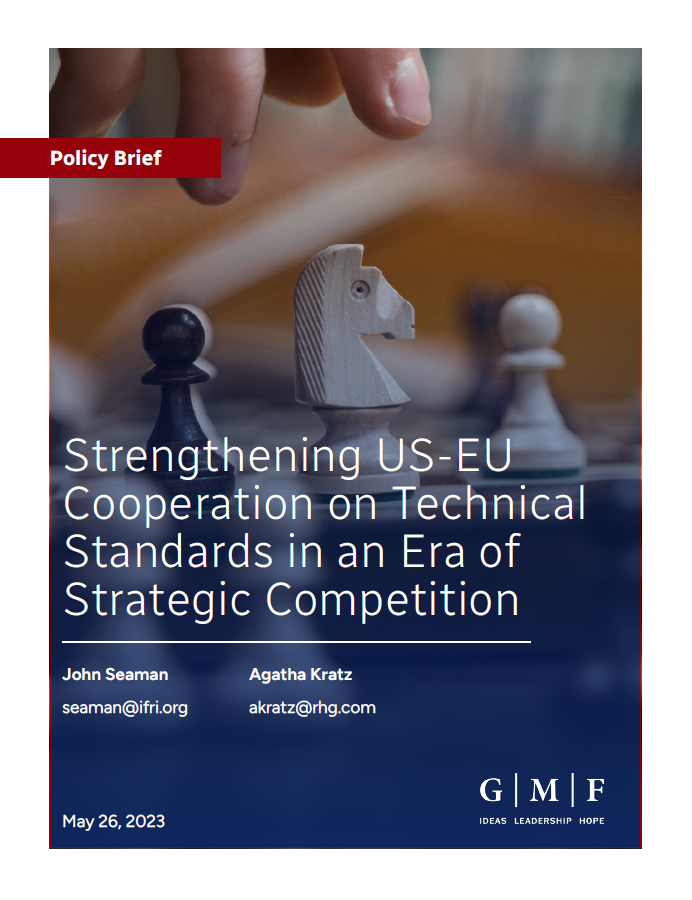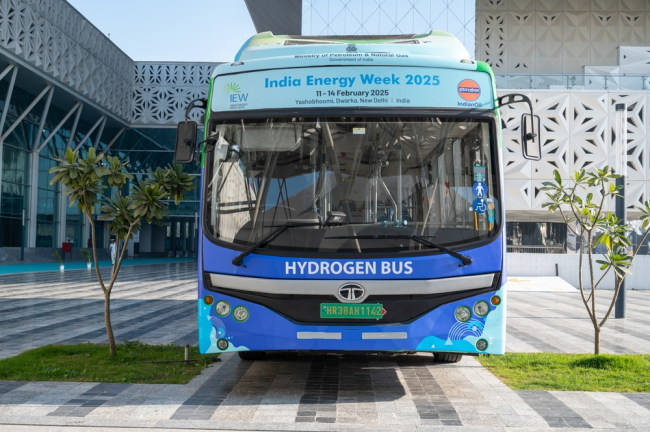Strengthening US-EU Cooperation on Technical Standards in an Era of Strategic Competition

Transatlantic ties have had a rough go in recent months. After an unprecedented degree of alignment on Russia in the first half of 2022, including the quick and efficient rollout of a series of groundbreaking sanctions packages, the United States and Europe stepped back into dispute territory with the fallout from measures taken by Washington, notably some key provisions of the pathbreaking Inflation Reduction Act (IRA) passed last summer.
This has again strained transatlantic cooperation and affected the potential for US-EU alignment, particularly around China and technology and trade issues. Recent US actions have amplified the divide between “Atlanticists” and “strategic autonomists” and made it harder for Europe to follow in Washington’s footsteps on, for example, export controls or outbound investment screening. Even though both issues are on the table, as European Commission President Ursula von der Leyen confirmed in her recent China speech, coordinated moves on these fronts could now be seen as bowing to US pressure in a context of perceived green-technology unilateralism.
Against this background, the December 2022 US-EU Trade and Technology Council (TTC) meeting can be seen as a missed opportunity. The TTC had, starting in September 2021, a productive and collaborative first year, but recently some of the most relevant transatlantic discussions have been happening outside the council’s framework. These include negotiations on IRA interpretation and carve-outs, and on export controls on semiconductor technology.
International technical standards, however, is one key aspect of transatlantic cooperation that is moving forward on a strong footing, with significant implications. Over the past 18 months of TTC work, the two sides have managed to build a solid foundation for engagement on the topic, from increased information sharing to the identification of key sectors for collaboration to fruitful collective action on recent International Telecommunications Union (ITU) leadership elections. This happened despite longstanding disagreements on ways to approach international standards development, the role of “harmonized standards”, for instance in the context of the EU’s regulatory framework for artificial intelligence (AI), and US criticism of the EU’s new standardization strategy.
Sometimes overlooked, collaboration on international technical standards is important in the current context of heightened technological competition. A highly technical workstream, international technical standards play a key role in defining future technological pathways. China’s increasing involvement in global standard setting makes transatlantic cooperation in the field crucial and increases the need for a common, strategic approach. Without careful coordination, there is a risk that the current, broad-based pushback against China could spill into the standards sphere and impede the important work of global standards organizations. There is, therefore, a need to strike a balance between strategic competition and an interest-driven approach that can ultimately uphold the benefits of collaborative global standards development.
On the heels of the G7 summit in Hiroshima, and ahead of the next TTC meeting in Sweden on May 30-31, both of which have international technical standards on their agendas, we lay out the case for why and how the United States and the EU can build on achievements in this area to maintain constructive engagement and attain concrete, ambitious results. We begin by explaining why preserving global technical standards is crucial to economic competitiveness and strategic objectives on both sides of the Atlantic (Part 2) and explore China’s increased involvement in the field (Part 3) before laying out six avenues for continued transatlantic cooperation on technical standards (Part 4).
>>> Download the article on GMF's website.
Related centers and programs
Discover our other research centers and programsFind out more
Discover all our analysesIndia’s Green Hydrogen Strategy in Action: Policy Actions, Market Insights, and Global Opportunities
India is poised to remain the world’s fastest-growing major economy, and this rapid growth is driving a sharp rise in energy demand. As the most populous country on the planet, India urgently needs to decarbonize its energy systems.

RAMSES 2024. A World to Be Remade
For its 42nd edition, RAMSES 2024 identifies three major challenges for 2024.

France and the Philippines should anchor their maritime partnership
With shared interests in promoting international law and sustainable development, France and the Philippines should strengthen their maritime cooperation in the Indo-Pacific. Through bilateral agreements, expanded joint exercises and the exchange of best practices, both nations can enhance maritime domain awareness, counter security threats and develop blue economy initiatives. This deeper collaboration would reinforce stability and environmental stewardship across the region.

The China-led AIIB, a geopolitical tool?
The establishment of the Asian Infrastructure Investment Bank (AIIB) in 2016, on a Chinese initiative, constituted an attempt to bridge the gap in infrastructure financing in Asia. However, it was also perceived in the West as a potential vehicle for China’s geostrategic agendas, fueling the suspicion that the institution might compete rather than align with existing multilateral development banks (MDBs) and impose its own standards.








